Blogs
The True Cost of Wasted Time: Why Tracking Minutes Matters in Business
Introduction
In the world of business, time is not just a resource—it’s a currency. Yet, it’s one of the most misused and undervalued assets in any organization. While companies may carefully monitor financial spending, few pay the same attention to how employee time is allocated, spent, or wasted.
The truth is: wasted time costs businesses more than they realize. When work hours go untracked or mismanaged, it results in lower productivity, delayed deadlines, poor client satisfaction, and ultimately, revenue loss.
But with modern solutions like Clock Session, businesses can turn every minute into an opportunity. Let’s dive into why tracking time down to the minute can make all the difference in today’s performance-driven workplace.
Why Every Minute Counts in Business
A standard workday includes eight hours. Multiply that by dozens or hundreds of employees, and you have thousands of hours in play every week. But are these hours being used efficiently?
Research shows that the average employee is only productive for about 3 hours per day, often due to distractions, unclear priorities, or inefficient processes. That means up to 60% of time may be underutilized.
And this isn’t just a matter of lost productivity—it’s a financial burden.
Example:
Let’s say your company has 25 employees, each earning £20/hour. If each person wastes just 1 hour per day, that’s:
- 25 hours/day
- £500/day
- £10,000/month
- £120,000/year in potential revenue lost.
These numbers don’t even include indirect costs like project delays, missed opportunities, client dissatisfaction, or employee disengagement.
The Hidden Costs of Wasted Time
When businesses fail to track time effectively, it doesn’t just impact payroll or billing—it affects nearly every operational layer:
- Lower Productivity
Without time tracking, it’s hard to know which tasks take up the most time—or why. Employees may spend too long on low-value work while high-priority projects suffer.
- Inaccurate Billing
Service-based businesses often bill clients hourly. Without precise time logs, undercharging or overcharging becomes a serious risk, leading to loss of trust or revenue.
- Team Burnout
If one team member consistently takes longer to complete tasks, others may be forced to overcompensate—leading to burnout, turnover, and dissatisfaction.
- Missed Deadlines
Project timelines are based on estimated workloads. If actual time spent is more than assumed, projects may run over time and budget.
Time Tracking as a Business Strategy
Many companies see time tracking as micromanagement. But with modern, intelligent tools like Clock Session, it’s a strategy for improvement—not surveillance.
Clock Session helps businesses:
- Track employee time automatically
- Generate data-driven productivity reports
- Identify time drains and idle patterns
- Build accountability through transparency
By showing where time is spent and how work patterns evolve, managers can make smarter decisions, allocate resources better, and optimize workflows.
How Clock Session Makes Every Minute Count
Clock Session goes beyond basic time tracking—it provides real-time visibility and AI-powered productivity insights for businesses of all sizes.
Here’s what makes it powerful:
1. Smart Time Tracking
Clock Session automatically tracks time spent on projects, tools, and tasks—accurately and without manual input. No more guessing who worked on what.
2. Real-Time Dashboards
Visual dashboards show you which teams are active, where time is being spent, and how it aligns with goals.
3. Productivity Analysis
Using AI, Clock Session breaks down productive vs. idle time and highlights where improvements can be made.
4. Seamless Integration
It integrates easily with project management and communication tools, making time tracking a natural part of the workflow.
5. Performance Optimization
The platform highlights top-performing teams, identifies roadblocks, and recommends improvements based on real usage data.
6. Billing & Timesheets
Generate accurate timesheets and client invoices based on tracked work hours—eliminating billing disputes and saving time.
The Ripple Effect of Time Tracking
When time is tracked efficiently, businesses see tangible improvements:
- Higher Efficiency: Employees become more mindful of how they spend their time.
- Better Focus: With visibility, distractions are minimized, and productivity improves.
- Fair Workload Distribution: Managers can identify overworked or underutilized team members.
- Informed Decision-Making: Data helps leadership adjust schedules, resources, and project timelines based on actual trends.
Changing Mindsets: From Tracking to Empowering
Employees often resist time tracking because they fear it’s a tool for micromanagement. But when presented transparently, Clock Session becomes a tool for empowerment.
It helps employees:
- Monitor their own performance
- Identify and reduce time-wasters
- Understand their strengths and areas for improvement
- Set realistic goals based on actual productivity
Time tracking becomes a path to self-improvement—not control.
Real Business Example
Imagine a marketing agency that relies on billable hours. Before Clock Session, projects ran late, billing was based on rough estimates, and client trust was declining.
After implementation:
- Billable time accuracy improved by 35%
- Employee productivity increased by 27%
- Project delivery became 20% faster
- Client satisfaction scores rose significantly
One tool. Tangible, measurable impact.
Final Thoughts: It’s Time to Track Your Time
You can’t manage what you don’t measure. In today’s business environment, time tracking is no longer optional—it’s essential.
With Clock Session, businesses can reclaim lost hours, optimize performance, and foster a culture of efficiency and accountability. Whether you’re a startup, agency, or enterprise, managing time down to the minute can unlock untapped productivity and revenue.
Don’t let another minute slip by.


